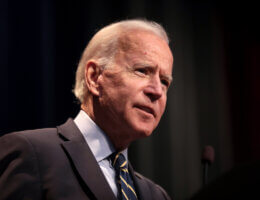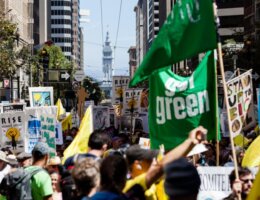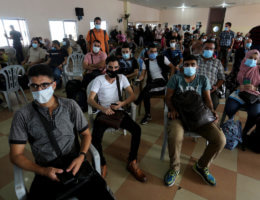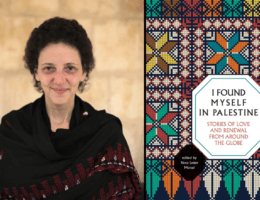“Admitting Israel into the program after only a month-and-a-half-long trial after decades of discrimination, occupation, and apartheid is irresponsible,” AJP Action Advocacy Director Ayah Ziyadeh tells Mondoweiss.
Israel might be on the verge of finally obtaining a U.S. visa waiver, but critics say new proposed travel guidelines will continue to discriminate against Palestinians.
Israel may have revised its West Bank entry rules in hopes of obtaining a U.S. visa waiver, but they’re still designed to isolate Palestinian society. “Allowing Israel into the U.S. Visa Waiver program in spite of this mistreatment would amount to an endorsement by the Biden administration of this discrimination,” says Americans for Justice in Palestine Action Advocacy Director Ayah Ziyadeh.
The Israeli government has revised a list of draconian restrictions on the entry of foreigners into the occupied West Bank amid pressure from US and EU authorities, though rights groups say the regulations still maintain the same goal: demographic engineering and isolation of Palestinian society.
Coming soon if a Palestinian-American wants to travel to the occupied West Bank to visit their family, they will need to apply to the Israeli government for advanced permission, reveal the personal information of the relatives they plan on visiting, along with data of any land they own or stand to inherit in the territory. These are just some of the invasive restrictions that Palestinians who hold foreign passports would be subjected to according to a new ordinance published by the Coordination of Government Activities in the Territories, the Israeli government agency responsible for enforcing Israeli policy in the occupied territory. “This is Apartheid in action,” Ahmed Abofoul, a lawyer with Palestinian human rights organization Al-Haq told Mondoweiss of the new policy.
The Sierra Club claimed to embrace racial justice principles in its environmental advocacy, but its decision to continue trips to Israel shows the organization is practicing its own “Palestine Exception” when it comes to racial justice-conscious conservationism.
Travel restrictions are among the most incapacitating consequences of Israel’s military occupation — so extreme that the very idea of travelling has become a phobia for many. And if you’ve spent days in lockdown trying to get in and out of Gaza, as Emad Moussa has, you know how these fears prey on all Gazans.
Nora Lester Murad: “‘I Found Myself in Palestine’ is intentionally not a book about Palestine. It’s not about the Israeli occupation or politics—at least not primarily. It’s not even about Palestinians. Rather, it is a collection of reflections by non-Palestinians whose stories are also a gift of this place.”






